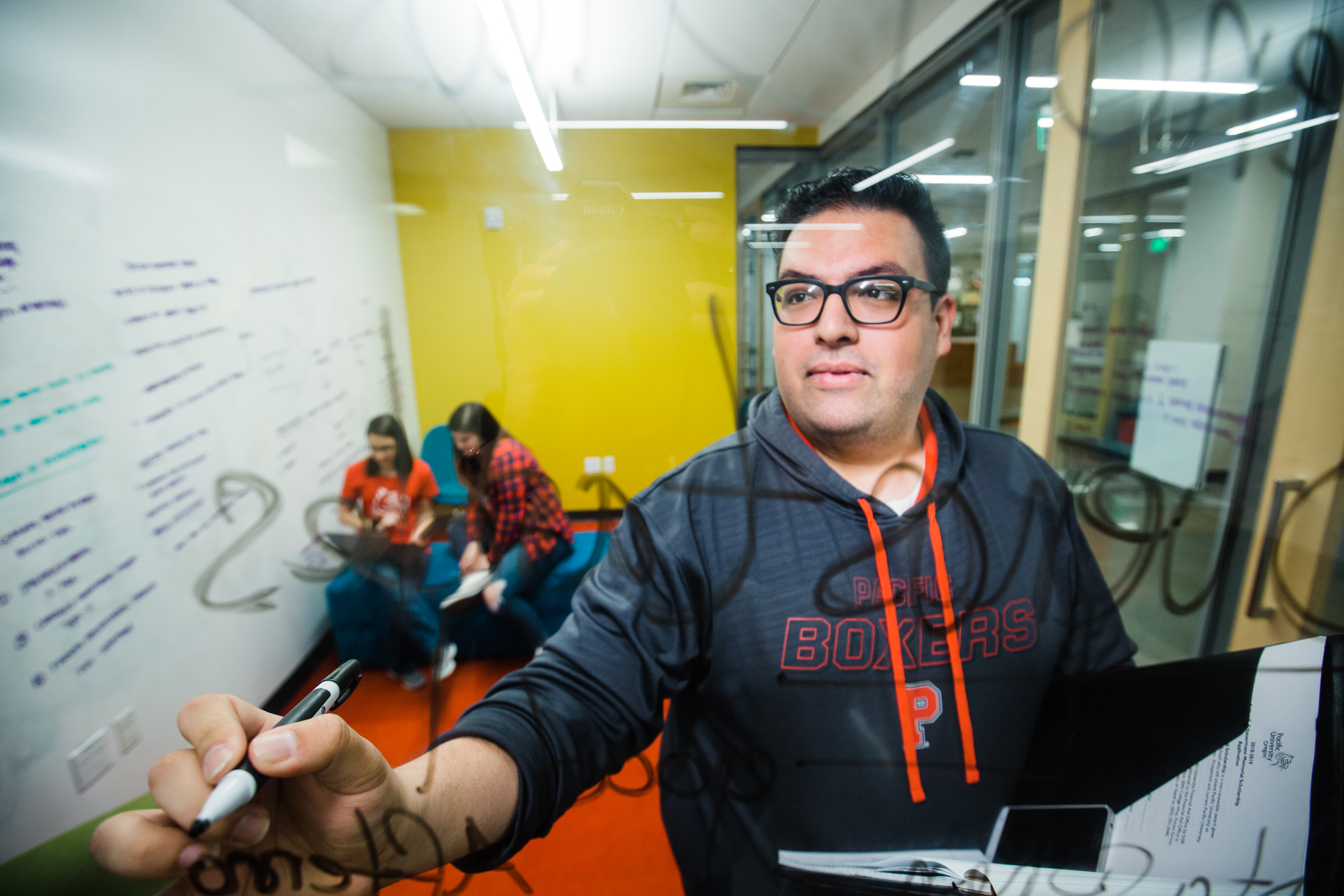
Transferring from a community college to a university can sometimes set you back with missing credits, but with Pacific’s Two-Year Guarantee, associate’s degree holders can complete their bachelor’s in just two years.
Since 2020, Pacific has been recognized by the Phi Theta Kappa Honor Society as one of the best schools in the country for transfer students, and is the only Oregon private university to earn the “Transfer Friendliness Rating.”
For many, low-cost community college programs have made higher education more accessible than ever before.
Whether taking time to decide on a degree path, fulfilling prerequisites for specific professional programs, or taking advantage of flexible course loads, the benefits of community college are abundant.
After getting your associate’s degree it can be valuable to explore transfer-friendly colleges to help you complete your undergraduate education.
Finding the best colleges to transfer your credits to isn’t difficult, but when deciding if more schooling is right for your career path it’s important to consider multiple factors.
Join us as we break down why you should consider transferring your community college credits in order to earn your bachelor’s degree in as little as two years.
How Do I Transfer from a Community College to a University?

Transferring your college credits from a community college to a university is not complicated and community college guidance counselors are more than happy to help.
How to transfer your credits will vary from school to school, but the general process looks like this:
- Connect with a Transfer Admissions Counselor. Working to help you make the most from your credits, these specific counselors can answer any questions you have.
- Visit Campus and Schedule an Advising Appointment. Discover campus and learn about services that help transfer students thrive.
- Apply for Admission and Financial Aid. Explore admissions criteria and submit your FAFSA to ensure the highest amount of financial aid.
- Send Official Transcripts. Whether you’ve attended one community college or several, all transcripts must be sent to ensure your credits transfer over.
- Submit Your Deposit. Relax! Once you’re accepted all that’s left is to submit your deposit and begin your path to an exciting new degree.
Do I Need to Complete My Associate’s Degree in Order to Transfer?
A completed associate’s degree is not required to begin the transfer process.
However, many two-year community college programs naturally fulfill the general education credits required by most four-year universities.
This means that, by completing an associate’s degree prior to transferring to a university, you will be able to focus on the courses within your major, streamlining the process and ensuring that you graduate on time.
Is Getting a Bachelor’s Degree Worth It?
Starting a career after getting your associate’s degree is possible, so it begs the question: why transfer and get a bachelor’s degree?
Apart from the implicit benefits of a bachelor’s degree, a completed undergraduate program has several advantages to only possessing a two-year certificate.
- Higher pay. A recent report showed that those with a bachelor’s degree earned roughly 30% more per week than those with just an associate’s degree.
Earning potential over time also increases the higher your education level, meaning you can make more money sooner with a bachelor’s.
- More postgraduate opportunities. While some professional programs only require certain prerequisite courses for admission, many graduate degree paths call for a completed bachelor’s degree.
For many, successful completion of a bachelor’s degree easily meets these same prerequisites through their standard curriculum.
- Greater transferable skills. From public speaking to team management, a full, four-year degree gives you skills that are highly desirable in and out of the workplace.
How Much Does It Cost to Complete a Bachelor's Degree After Transferring?
The low cost of community college programs makes them an affordable entry point into higher education. For this reason, the cost of a four-year university can give some applicants pause.
However, by completing an associate’s degree before attending university, you save money by only needing to pay for two years of a bachelor’s degree program.
Financial aid and scholarships for transfer students are available, and, at Pacific, almost every student receives guaranteed financial support to offset the cost of college.
Pacific’s Two-Year Transfer Guarantee

To help make getting a four-year degree more accessible, Pacific promises that you will be able to graduate in just two years if you transfer after earning an associate’s degree.
Our Two-Year Graduation Guarantee ensures that transfer students can earn their bachelor’s in no more than two years, dramatically decreasing the cost and time of a college education.
Graduating in just two years means that transfer students:
- Start their career faster. No more waiting for openings in popular classes or general education roadblocks. You can earn your bachelor’s quickly and leverage your passion into a rewarding career.
- Get into grad school sooner. By freeing up time to focus on the core classes of your chosen major, you can make sure prerequisites for graduate and professional school are prioritized.
- Spend less money. Graduating quickly means spending less on courses and materials, allowing you to save money for life after undergrad.
What Should I Look for When Transferring?
The best colleges to transfer to are those which support students regardless of their previous education or background.
Over 35% of college students are nontraditional — a number that is even higher at the community college level — so look for resources for those with children, active careers, and for first-generation students.
Courses at the university level can, at times, be more rigorous than those in community colleges, so you should also prioritize programs that feature ample academic support.
Social support services for BIPOC and LGBTQ students can make the transition from community college more smooth, allowing students from all backgrounds a place to thrive.
Inquire today and get you transfer questions answered by an expert admissions counselor!